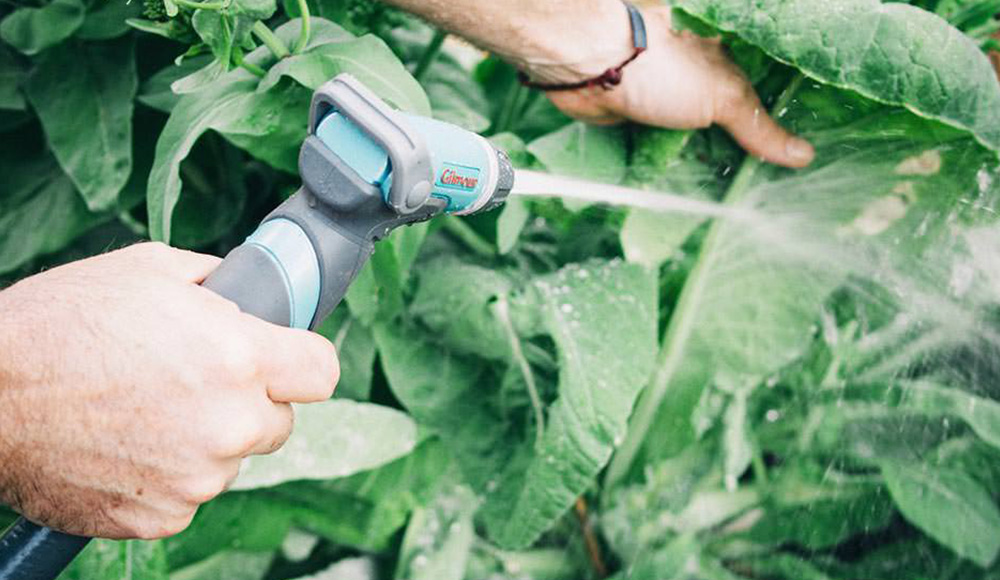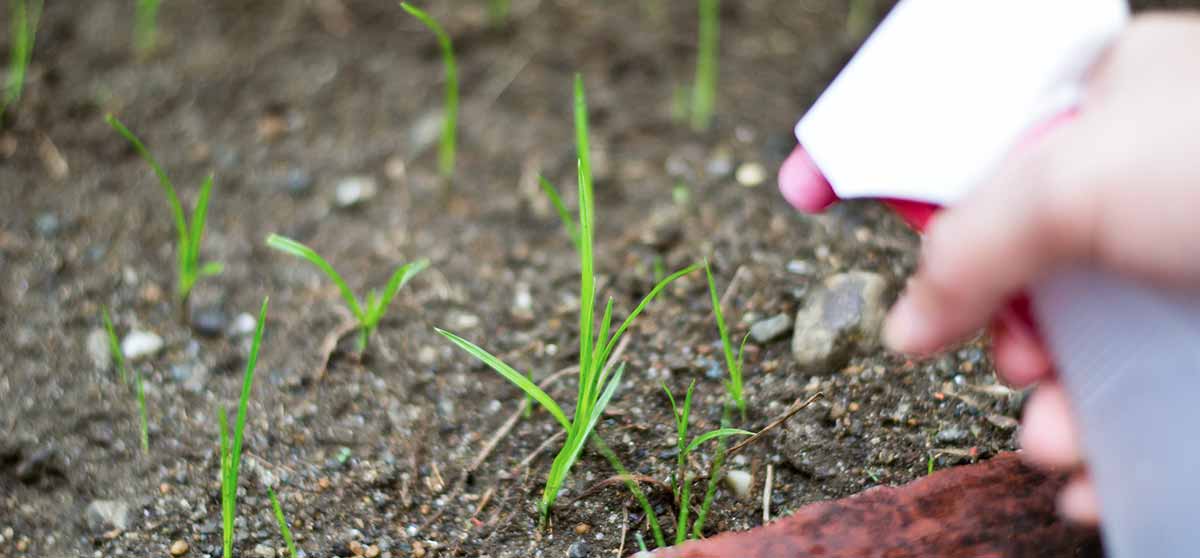Weed control stops the spread or growth of weeds by using manual techniques such as soil cultivation, mulching, herbicides, and natural weed killers. Weeds are potentially harmful to garden plants and some livestocks. These pesky weeds affect your plants by interfering with their space, water, sunlight and nutrients.
In controlling the growth of weeds, there’s no better substitute to natural, cheaper, non-toxic and homemade organic weed killers. These are eco-friendly and readily available too. If your garden is infested with weeds, then try these weed control and garden pest control tips on your own.
Natural Weed Killers
Salt
Salt is an inexpensive natural weed control method. Salt has the ability to cause dehydration on weeds and disrupt the internal balance of their cells. It is good to use in an average-sized garden since it can easily be diluted in water or rain.

To prepare salt as a natural weed killer, just add rock or table salt into the water until it is dissolved. And if you want it to be more potent, mix it with dishwashing soap and vinegar.
However, extra caution must be observed when applying the solution to the weed in order to prevent damage to the other vegetations. Use a funnel and aim directly to the target weed.
Vinegar
Vinegar (white and cider) also kill weeds and has the same effect just like salt. This is because it has high acidity content, especially the white vinegar. To make it even deadlier to weeds, combine it with high acidity ingredients like lemon juice.
It is easy to prepare and make this natural homemade solution: purchase a vinegar with at least 10% acetic acid. Pour a quart of that vinegar (about 1 litre) in a spray bottle and add 4 ounces (113 millilitres) of lemon juice. Spray it directly to the weeds to kill it.
Exercise caution when using this method. Wear gloves and goggles to avoid direct contact as it can hurt the skin and the eyes. Regardless of being a natural herbicide, other plants may also die when they come in contact with this solution.
Boiled water
Boiled water can be used as an effective natural weed killer. It can also treat and prevent plant diseases. Far from the other pesticides or home remedies, boiling water is proven effective in killing weeds by burning it.

It can be used as a natural garden pest control too. It prevents the spread of soil-borne pest present in the garden like aphids, scale, mealybugs and mites, as well as pathogens. But don’t apply hot water directly in your plants as it will hamper its growth or kill them.
Mulch
Spreading mulch in your garden is also a good alternative to control weeds proliferation. It suppresses the sunlight that the weeds need for their formation.
Mulch comes in various forms. It is either organic, such as wood chips, tree bark, compost, pine needles, or other parts of plants. Mulch can also be inorganic, such as gravel, pebbles stone, or volcanic rock; it can consist of man-made materials such as ground or pulverized tires, solid sheets of fabric or plastic.
The implementation of this method will give the gardener beneficial effects: preventing soil erosion; increasing water retention for his desired plants, improving plant growth and regulating soil temperature and moisture.
However, a mismanaged organic mulch poses a threat if placed near the house. As it attracts pests and insects such as termites, sowbugs, pillbugs, millipedes, earwigs, centipedes, and ants. Inorganic mulch, on the other hand, are unattractive to pest and insects since these are not decaying materials.
Garden Pest Control
Biological pest control engages the use of other living organisms to kill weeds and other pests. It does not cause contamination, and the pests do not become resistant. Except that this method can produce new problems, as the predator can possibly switch to targeting your plants instead of the pests your want to eliminate.

In contrast, chemical pest control introduce the use of pesticides which are fast and effective. It produces good results in protecting plants, especially in bigger farms and gardens. It must be used with caution and appropriately though, as these chemicals can be dangerous to humans, animals, and other living organisms.
Garden pest control is necessary, if the gardener wants a long term protection not only against weeds, but also with pests. Preventing pest outbreak is the best control, and using only treatments of minimal toxicity when needed.
Build a terrace with a tarp
Building a terrace with a tarp is another great alternative to control weed and pest infestation. This landscape design not only bring aesthetic value, but also helps in preventing soil erosion. It helps retain the rainwater into the soil instead of descending from the terrace slope.
This method becomes more effective when the terrace is covered with a tarp. When tarps are installed, fumigation takes place and fills the area completely with gaseous pesticides or fumigants. In effect, it suffocates or poisons the pest found within it.

